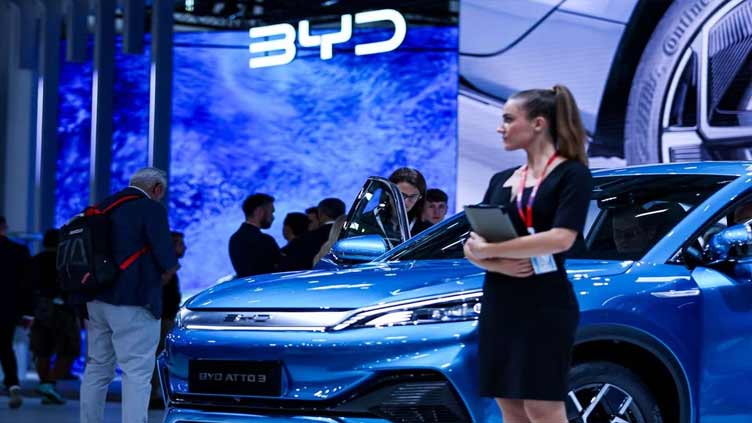Europe’s carmakers have a fight on their hands to produce lower-cost electric vehicles (EVs) and erase China’s lead in developing cheaper, more consumer-friendly models, executives said at Munich’s IAA mobility show.
“We have to close the gap on costs with some Chinese players that started on EVs a generation earlier,” Renault CEO Luca de Meo told Reuters at the car show, adding when manufacturing costs decline, prices will also go down.
De Meo said as part of the French carmaker’s drive toward price parity with the Chinese, its R5 EV due out next year will be 25% to 30% cheaper than its electric Scenic and Megane models.
Chinese EV makers, including BYD (002594.SZ), Nio (9866.HK) and Xpeng (9868.HK) are all targeting Europe’s EV market, where sales soared nearly 55% to about 820,000 vehicles in the first seven months of 2023, making up about 13% of all car sales.
Xpeng plans to expand into more European markets in 2024, and Zhejiang Leapmotor Technology (9863.HK) announced five models for overseas markets, including Europe, over the next two years.
According to auto consultancy Inovev, 8% of new EVs sold in Europe so far this year were made by Chinese brands, up from 6% last year and 4% in 2021.
About 41% of exhibitors at this year’s Munich event are headquartered in Asia, with double the number of Chinese companies attending, including BYD, Xpeng and battery maker CATL.
The arrival of Chinese EV makers in Europe has raised concerns they could dominate EV sales.
“We (Germany) are losing our competitiveness,” said Hildegard Mueller, president of the German Association of the Automotive Industry (VDA), adding the Munich car show illustrated “how the high pressure of international competition” makes it essential for Germany to invest more in electrification.
The average EV in China cost less than 32,000 euros ($35,000) in the first half of 2022 compared with around 56,000 euros in Europe, according to researchers at Jato Dynamics.
“The base car market segment will either vanish or will not be done by European manufacturers,” BMW CEO Oliver Zipse said on Sunday evening in reference to China’s push into Europe.
Mercedes-Benz (MBGn.DE) will present its CLA compact class and BMW its Neue Klasse, both targeting higher range and efficiency while halving production costs.
Volkswagen CEO Oliver Blume told reporters that through its partnerships in China, the carmaker aims to cut battery cell costs by 50%.
Xpeng President Brian Gu said while European carmakers currently lag behind China, they have made a “huge commitment” to EVs with partnerships and large investments in technology.
“I would never discount the large (carmakers) trying really hard to come back and focus on this important transition,” Gu said.
Auto industry analyst Ferdinand Dudenhoeffer said the Chinese are “world champions” at making batteries, which can make up 40% of an EV’s cost.
Chinese battery makers setting up in Germany are helping to lower EV costs and German politicians need to make sure they are “not driven out of the country with stupid decoupling strategies,” Dudenhoeffer added.
Post Views: 69


 Sports3 months ago
Sports3 months ago
 Sports3 months ago
Sports3 months ago
 Fashion3 months ago
Fashion3 months ago
 World3 months ago
World3 months ago
 World3 months ago
World3 months ago
 Sports2 months ago
Sports2 months ago
 Sports2 months ago
Sports2 months ago
 World3 months ago
World3 months ago



















